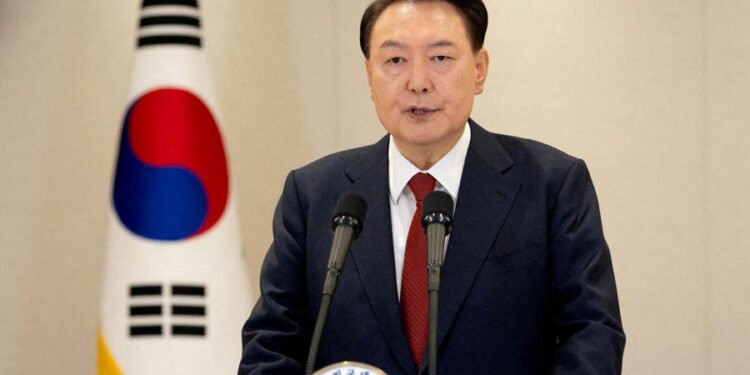By Emmanuel Nduka
In a landmark ruling early Friday, South Korea’s Constitutional Court upheld the impeachment of President Yoon Suk Yeol, removing him from office over his controversial declaration of martial law.
The unanimous decision marks a dramatic fall for Yoon, who went from political newcomer to president in 2022.
The court ruled that Yoon’s martial law decree violated the constitution, as it involved unlawful use of military and police forces to block legislative activities.
Acting chief judge Moon Hyung-bae emphasized that the negative impact on South Korea’s constitutional order outweighed the harm of removing the president from office.
Following the verdict, protests erupted across South Korea. Outside Yoon’s official residence, supporters voiced anger and sadness, while anti-Yoon demonstrators celebrated the ruling near Seoul’s old royal palace. Despite some clashes, the protests remained largely peaceful.
South Korea will hold a presidential election within two months to replace Yoon, but the deep divisions over his impeachment could complicate the political landscape. Prime Minister Han Duck-soo, now acting president, vowed to ensure national stability and a smooth transition to the next leader.
Opposition leader Lee Jae-myung, early favorite to succeed Yoon, hailed the ruling as a victory for democracy, despite facing his own legal battles. As the nation prepares for elections, the fallout from Yoon’s impeachment continues to stir tensions.
Yoon, now stripped of presidential immunity, faces criminal charges, including abuse of power, in connection with his martial law decree and other scandals.
His impeachment is a significant moment in South Korea’s political history, marking the first time a sitting president has been indicted while in office.



































